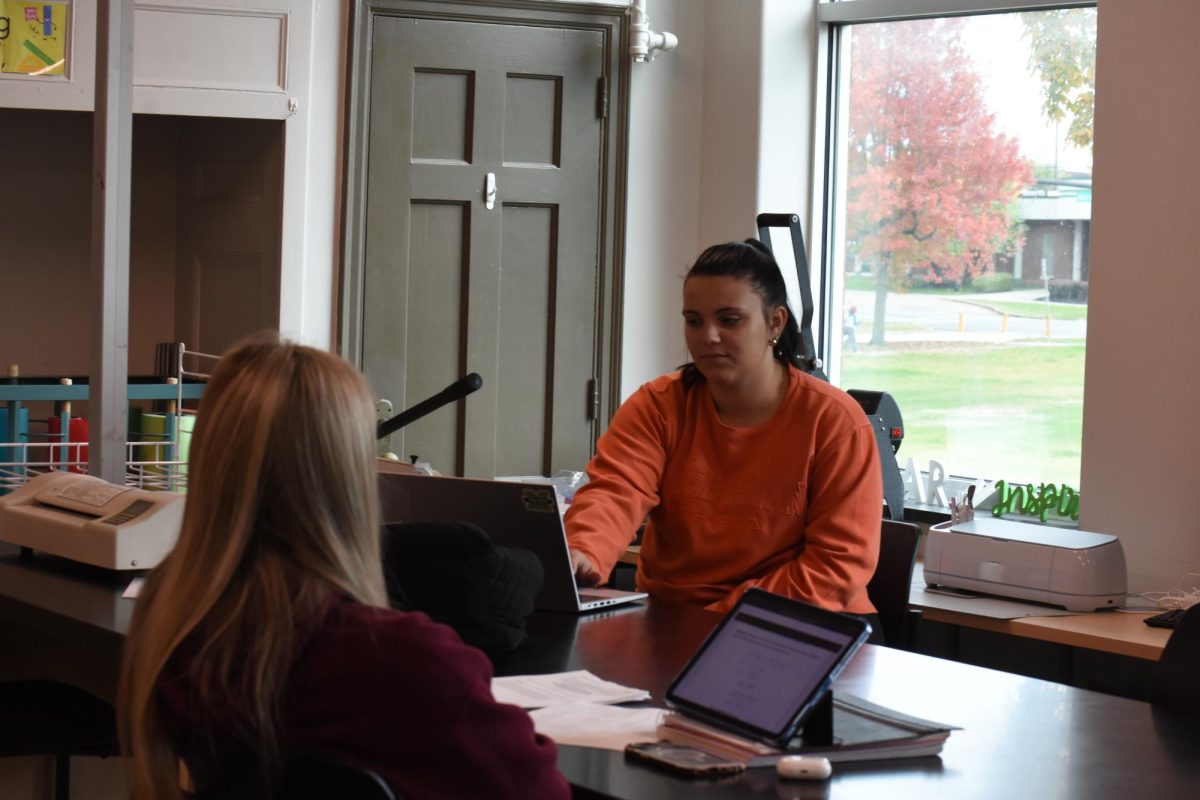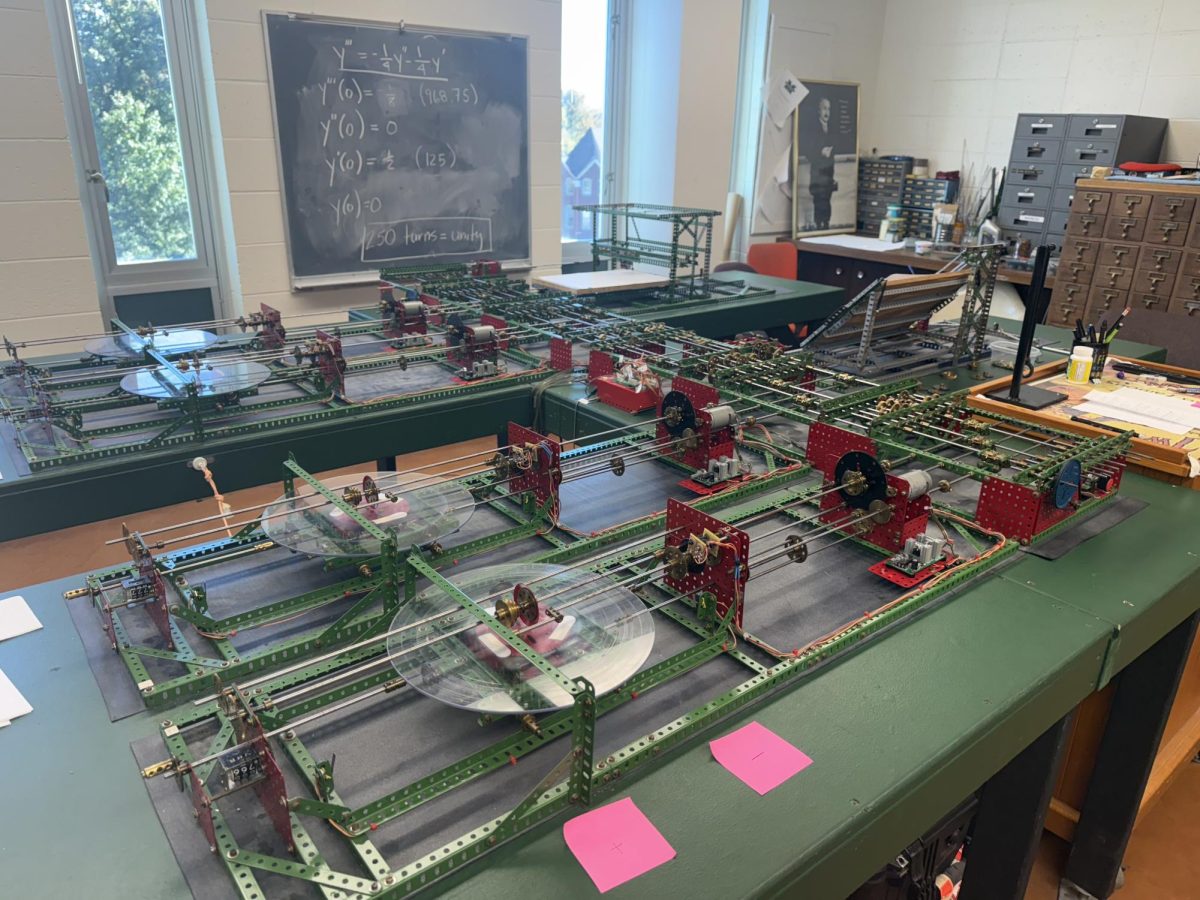Robert Meeropol shares the Rosenberg’s story
November 12, 2014
Robert Meeropol, one of the sons of Julius and Ethel Rosenberg, shared his parents story with Marshall University students and the Huntington community during a Rosen-berg trial seminar sponsored by Marshall’s Department of Social Work and the College of Health Professions. In his speech, Meeropol told the story of his parents’ trial and eventual execution for crimes they never actually commited.“In July, 1950, Julius Rosen-berg was arrested, after that, just a few weeks later, the Ko-rean War began,” Meeropol said. “Rosenberg and his wife, Ethel, were executed on June 19, 1953, before the Korean War ended.”The Rosenberg’s were charged with conspiracy to commit espionage. They were tried and sentenced for giving the secret of the atomic bomb to the Soviet Union. “The Rosenberg’s trial was appealed to the Supreme Court nine times, but the court refused to even review the re-cord,” Meeropol said. “At that time, the presidents were Presidents Truman and then President Eisenhower—and both denied their request for clemency.”During this time, the courts didn’t require tangible evidence to charge them for conspiracy. All the government needed was witnesses, all of whom were charged with the same con-spiracy and received favorable treatment for testifying that the Rosenbergs were guilty.“The Rosenbergs' brother and sister-in-law, Ruth Green-glass and David Greenglass, testified that Julius, with the help of Ethel, helped recruit David into an atomic spy ring in the year of 1944,” Meeropol said.David Greenglass worked at Los Alamos in New Mexico as an Army sergeant. This is where the first atomic bomb was con-structed. There was one set of sketches with a description of the bomb that David provided for attendees of the lecture to view. In September 1945, Da-vid Greenglass swore during the trial Julius Rosenberg had done one of the sketches. He also said Ethel typed up David’s notes and she helped steal what the prosecution considered “the most important scientific secret ever known to mankind.”“In the 1970s, the FBI docu-ments were first made public,” Meeropol said. “The Rosen-bergs denied all charges while they testified in their own de-fense. They refused to answer repeated questions during the prosecution. They invoked their Fifth Amendment rights. The Rosenbergs refusal to an-swer the questions made many feel that they were guilty of be-ing members of the Communist Party and also that they were spies for the Soviet Union.”On the day of their sentenc-ing, Judge Kaufman sentenced the Rosenbergs to death for conspiracy. During the sentenc-ing, he said he considered their crimes worse than murder.“I believe your conduct in putting into the hands of the Russians the A-bomb, years before our best scientists pre-dicted Russia would perfect the bomb,” Kaufman said, “has already caused, in my opinion, the Communist aggression in Korea, with the resultant casu-alties exceeding fifty thousand, and who knows how many mil-lions more of innocent people may pay the price of your treason.”Meeropol said after the sen-tencing, two scientists, J. Robert Oppenheimer and Harold Urey, stated there was no secret of the atomic bomb. After other scientists agreed with the as-sessments of these scientists, they found out the Green-glass’ material was incorrect and incomplete. The material the Greenglass’ brought forth didn’t serve any value to the Russians. In 2008, the transcripts of 43 out of the 46 witnesses who testified before the grand jury that indicted the Rosenbergs were released to the public. In these transcripts, includ-ing the late Ruth Greenglass’ testimony, it didn’t mention anything about the meeting that David Greenglass said oc-curred. It didn’t mention the atomic bomb sketch or Ethel Rosenberg typing notes for Ju-lius Rosenburg. It didn’t even mention any hand-written notes or Ethel’s presence dur-ing the meeting.On the same day, Morton Sobell came forward and said Julius Rosenburg passed non-atomic, military-industrial information to the USSR to help them defeat the Nazis during WWII.The United States govern-ment knew all along Ethel Rosenberg was not a spy agent, and Julius Rosenberg wasn’t an atomic spy, but executed them anyway.“During the 1940’s, Julius Rosenberg engaged in non-atomic espionage,” Meeropol said. “The Greenglass’ deliv-ered the atomic information to the Soviet Union. Neither Ethel Rosenberg nor Julius Rosenberg were a member of the atomic spy ring that had stolen the secret of the atomic bomb.”
J’Leigha Long can be contacted at [email protected].













